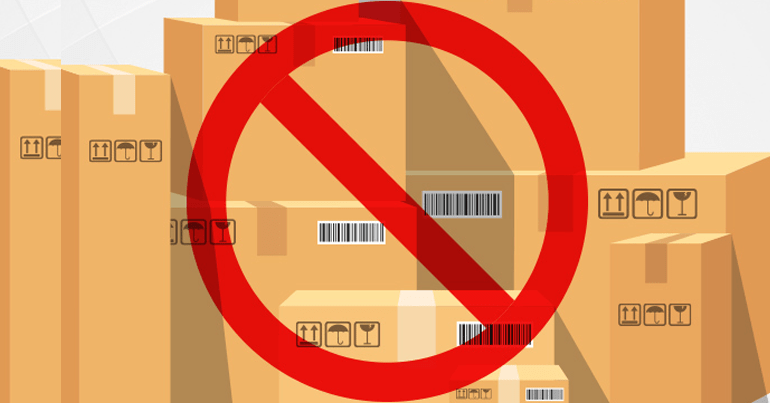Because of concerns about safety, security, and legality, domestic couriers frequently have explicit policies on what may and cannot be included in packages. While the list of forbidden goods varies throughout courier providers, it usually consists of:
- Chemicals, explosives, flammable liquids, gases, and other substances that provide a risk are examples of hazardous materials.
- Objects that are unlawful or restricted: Those that are forbidden by law, such as guns, contraband, illicit narcotics, or objects that aren't allowed to be transported.
- Perishable goods: Goods like fresh food or certain biological materials that might deteriorate or rot while in transportation.
- Items that are easily breakable, exceedingly precious, or irreplaceable are classified as fragile or valuable.
- Live animals or plants: Most don't accept live animals or certain types of plants, with the exception of select couriers who manage the transportation of live animals.
- Lithium batteries: Because lithium batteries can catch fire, there are limitations on how they can be shipped.
- Tobacco or alcohol: Shipping tobacco or alcohol items may be subject to prohibitions or restrictions from some courier services.
For the most recent list of products that are forbidden, always verify with your particular courier service as laws can change and differ across businesses and areas. They usually include comprehensive details on what may and cannot be delivered using their services in order to guarantee the safe and authorised delivery of packages.
